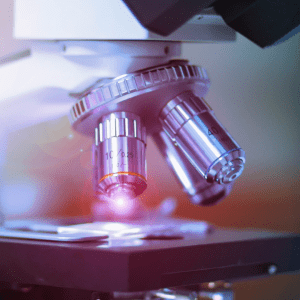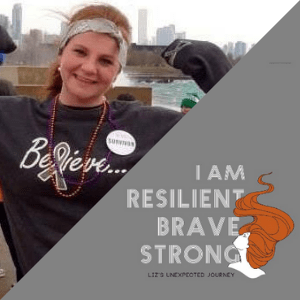Where resilience and community converge, one journey broadens our understanding of hope and friendship. Here are some numbers to consider as you unfold the layers of this story: 18 to 29—over 10 years that redefine lives and camaraderie; 3 to 159 —individuals who pledged themselves in an empowering movement; and $5,000 to $125,756 (as of October 31, 2024)—from initial hope to fueling a life-changing mission.
For Karl Schmidt, Alex Budde and Treven Goldsmith, a brain tumor journey transformed their friendship and revealed the profound impact they could make together when they formed Team Karl for the ABTA Los Angeles BT5K.
Karl, Alex and Treven met at their fraternity more than 10 years ago at the University of Southern California (USC). They quickly found common ground with skiing, hiking, and sports, among other adventures together. One of their countless fond memories was cramming 12 people in a 3-bedroom Airbnb for a USC football trip. Most ended up sleeping on a rented bus parked outside.
They forged a bond that defied the miles between them after graduation; connected by their adventures and life milestones, like marriage or new careers. But no one in their group would ever dream that a brain tumor diagnosis would interrupt the natural course of their lives.
No signs or symptoms of a brain tumor
“In the summer of 2023, I was on a family vacation in Oregon where I grew up, when a seizure struck. I was rushed to the local hospital, where the medical team discovered a brain tumor the size of a fist. The pathology report determined that I had an oligodendroglioma, a rare brain cancer,” said Karl Schmidt, 29 of Corvallis, OR.
Karl had no previous symptoms: not seizures, not even headaches.
“To say it was a shocking discovery is an understatement,” said Karl. “I underwent surgery shortly after the seizure to remove the bulk of the tumor. That fall, I started chemotherapy for six months. This July, I had a second surgery to remove more residual tumor. I’ll complete proton radiation in mid-November, and things are looking good,” said Karl.
When Alex and Treven learned of Karl’s brain tumor diagnosis, they felt helpless to support him. “We wanted to take away this devastating diagnosis – make the nightmare go away,” said Treven.
“But we knew we had to give him space since his family was there to provide daily care,” said Alex.
What is an Oligodendroglioma?
Oligodendroglioma (or ‘oligos’) are primary brain tumors that mostly occur and stay in the brain, rather than impact other organs. The cause of oligo tumors is unknown at this time.
According to the ABTA patient and caregiver education on oligodendrogliomas, “the discovery of the genetic mutation in the IDH1 or IDH2 gene and the missing parts of the two chromosomes (1p and 19q) is important, because the lack of both chromosomes can help determine an individual’s likely outcome of the disease (prognosis) and may predict response to treatment.”
Oligos account for just 4.5% of primary brain tumors and are most common in adults. For an oligio brain tumor to occur in Karl, a young man in his 20s, that is rarer still.
Power of Community and Friendship
Understanding that there is no cure for oligo tumors right now, Alex and Treven were driven to show their unwavering support for Karl in the fight against this rare disease. They conducted their own investigation of the best options and considered next steps to take that would have ripple effects in the years to come.
They decided to support the ABTA by forming Team Karl to participate in the Los Angeles BT5K, a growing annual event to raise awareness and funds to support patient and caregiver resources and brain tumor research.
“Through the ABTA BT5K, we could help Karl in a tangible way. We could raise funds that could be directed to oligo research,” said Treven.
For 10 months, they reached out to family, friends, neighbors, and colleagues both locally and globally. By the time of this publication, their team had raised over $125,000—enough to already fully fund an ABTA Discovery Grant to further research the IDH1 gene mutation. Their dedication inspired 159 supporters from across the country to join them in supporting Karl, and Team Karl has received over 500 donations to-date. Team Karl continues to accept donations through the end of the year. Karl, Treven, and Alex also served on the LA BT5K Host Committee to help put on the best event yet.
“The success of Team Karl is a testament to having a strong network of people who want to get involved in some way,” said Alex. “People would buy t-shirts to help raise funds for the team or someone made a single donation of $500 from across the world to show their support.”
Each gesture, big or small, reflected the collective power of love and community. For Karl, it was not only about funding research but also about feeling embraced by those around him.
“I am the luckiest man in the world to have an army of people behind me and in lock-step with me on this journey,” said Karl.




Five Ways Karl’s Community Empowered Him Throughout the Brain Tumor Journey
- Offered camaraderie and companionship
- Spent quality time together as much or as little as Karl needed
- Listened and understood Karl’s needs during treatment/recovery
- Supported a cause in Karl’s name; conducted all the research and minimized information overload
- Gave him love, support, and the opportunity to pursue a cause close to his heart with Team Karl.
How May I Support Someone Experiencing a Brain Tumor Diagnosis?
For more information about supporting someone diagnosed with a brain tumor, consider visiting the ABTA’s website that provides detailed information about brains tumors and caregiving, including webinars, educational events, informational booklets, social and emotional support and so much more.
About Meet Hope Head On
Because of the generous support from people like you, the ABTA has given over $35 million for brain tumor research. The ABTA’s campaign, “Meet Hope Head On,” created for our 50th anniversary, is focused on raising $50 million, in part to fund critical brain tumor research. This campaign is vital for continuing the kind of work that led to the recent FDA approval of vorasidenib, a breakthrough treatment for low-grade glioma.













